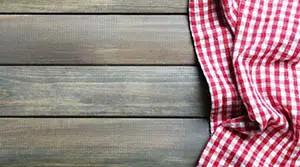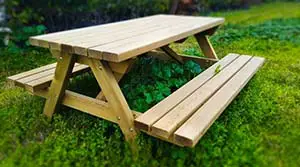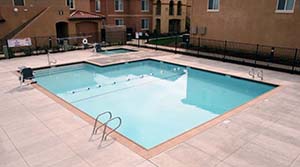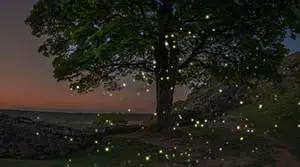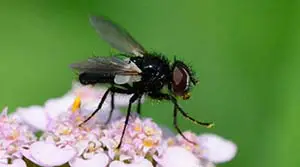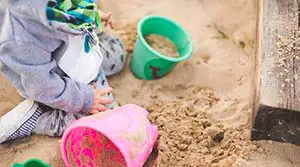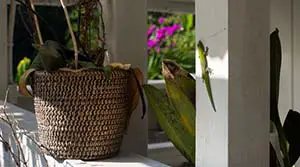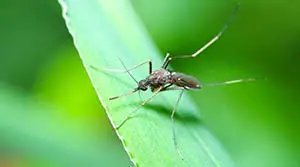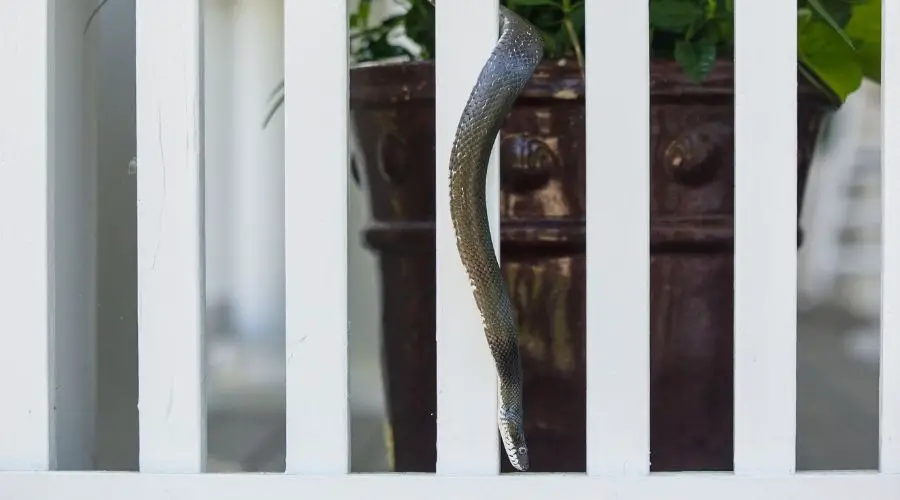
Doesn’t the thought of sharing your porch with snakes send chills down your spine and make you shudder? You are not alone. Luckily, there are effective ways to keep them away. Here is some listed down below:
- Get rid of snake food
- Make water inaccessible
- Safeguard your wood piles
- Trim the vegetation
- Eliminate yard debris
- Enclose your property
- Block hideout holes and entrance points
- Own a cats
- Use snake repellants
- Call in the professionals
These are all great ways to keep snakes away from your porch. Generally, maintaining a clean patio makes it less likely for animals to make your home their habitat.
Everything is fair in the fight against snakes. Otherwise, they will make a home there, bite you, possibly strangle your kids, and even eat up your smaller pets.
This article discusses in greater detail why you should keep snakes away from your porch, reasons you may still want them in the outdoors, what attracts them there in the first place, and ways to get rid of them from your home.
Why Are Snakes Important?
1. Snakes are Good for the Ecosystem
Snakes, like other animals, have a role to play in any ecosystem in which they exist. They serve as food for birds and mammals like the mongoose and honey badger, for starters. In addition, they serve as a source of food for other snakes, such as the king cobra and king snake.
2. Snakes Are Predators
Snakes are also predators. They tend to eat a lot of rodents, such as mice, rats, gerbils, and hamsters. These animals also eat amphibians like frogs, reptiles like lizards, insects, and slugs, among other things. As a result of their predatory tendencies, snakes help reduce the population of lawn and garden pests.
It is worth noting that rodents transmit many diseases such as:
- Tularemia
- Salmonellosis
- Hantavirus
- Plague
Since snakes eat these animals, they indirectly help reduce the rate at which pests spread infections within the human and pet populations, thus making you safer.
For example, when snakes reduce rodent populations with ticks, they can help lower Lyme disease prevalence.
3. Snakes Help with Plant Production
Another added advantage of having snakes on your property is that they aid in plant production. They consume rodents that eat seeds and then expel them intact.
Since snakes move long distances, they increase the rate at which seeds are dispersed, thus improving their chances of growing in many places.
Therefore, snakes’ role within any ecosystem, even when you remove them, do so humanely. Your goal should always be relocation, not elimination.
Why Are Snakes Dangerous?
While snakes are essential to every ecosystem, they are not your average pets. They are naturally wild animals that pose several dangers to you, your family, and your pets. In addition, they could cause other complications in your life.
Below are some reasons why you should handle snakes with care.
1. They Are Naturally Scary
You probably will not be surprised to discover that most Americans fear snakes. They are one of those animals that are just scary. Therefore, having snakes on your porch can make your life very complicated.
If you have kids, they may not be able to play outside or even leave the house due to fear of snakes. The same may happen with you. Your loved ones may decide not to visit and spend time with you because they want nothing to do with these reptiles.
So, before long, your movements will become restricted, and your social life will begin to suffer. That could be a pretty lonely existence that reduces your quality of life.
2. Snakes Could Eat Your Pets
A snake can gobble up prey up to three times larger than its head is broad. That is terrible news for your pets.
Pet hamsters and rabbits are natural sources of food for snakes. So, if a snake on your porch finds its way into their cages, you will likely find nothing. But that’s not all snakes eat. Giant constrictors can make a meal out of pet cats, dogs, and chickens.
For those reasons, you must address the issue of snakes on your porch. If your pets hang out in the outdoors, you may end up losing them.
3. Snakes Can Cause Disabilities
If the snake on your porch is venomous, you need to get rid of it fast. That is because the bite from a venomous snake can cause soft tissue necrosis.
When there is extensive tissue damage, you may lose a limb through amputation. It is also worth noting that people tend to use the wrong approach when implementing snake bite first aid.
The incorrect use of a tourniquet could lead to limb ischemia, which leads to artery blockage within the lower extremities. The resulting gangrene and non-healing wounds may necessitate amputation.
It’s safe to assume that a venomous snake on your porch could lead to preventable disability if you or your loved one gets bitten.
4. Snakes Can Cause Deaths
Some snakes are highly venomous. If they bite you and you do not get treatment in time, you could die.
Venom from snakes affects the body in many ways and can cause paralysis, breathing problems, organ failure, and fatal bleeding.
Any of these health complications can cause death. Children, in particular, are more vulnerable to bites from venomous snakes because of their smaller body mass.
However, snakes do not have to be venomous to kill you. Constrictors can also kill you. They will suffocate you or even your pet to death in such cases. Pythons and boas tend to be the biggest culprits in this regard.
What Attracts Snakes to Your Porch?
Snakes do not show up on your porch by chance. If they are there, it’s because you have made it possible for them to come and enjoy their stay. So, it helps to understand what could be bringing them to your outdoor space.
Here are a few snake attractants you need to consider.
1. Food
For snakes, food comes in many forms. These include slugs, rats, frogs, fish, birds, and rodents. Snakes are likely to show up if you have these things on your porch or the yard.
Sometimes, you may not even realize that you have these things because you ignore what’s going on or what you are doing.
For example, if you keep putting out bird seeds or installing nesting boxes, you are not only attracting birds but rodents like mice or young squirrels that also feed on these things if the food is accessible to them. And since these pests are also food for snakes, they will show up for the party.
You may also want to feed your pets indoors or dispose of their leftovers correctly for similar reasons.
2. Water
A well-watered lawn is beautiful to look at. But you may not realize that excessive watering also attracts animals like slugs, frogs, and worms. Snakes will also be around where these animals are since they consider them food.
Snakes are also likely to find water features like birdbaths and koi ponds in your yard interesting. First, these features attract birds, insects, and rodents, which snakes use as a direct food source.
Fish within koi ponds are an excellent source of snake food too. In addition, these reptiles use water for drinking and to cool off.
3. Shelter
For snakes, an ideal shelter is a place that is cool or warm depending on the season, out of sight, dark, and safe from predators.
It also helps if the shelter in question is near snake food sources. So, if your yard or the porch offers that kind of shelter, the scaly visitors may soon make a home in your home.
Snakes can hide in vegetation around your porch, cracks, crevices within your home’s walls and floor, rodent burrows in your yard, abandoned water containers, underneath your soil, wood stack, decaying tree logs, and even within tree hollows. Also, the debris within your yard may serve as a hiding place for them.
How Do You Get Rid of Snakes on Your Porch?
Once you learn the benefits that snakes offer, the problems they can bring, and what attracts them, you are in an excellent position to remove them from your porch.
Below are some ways you can deal with the attractants and keep snakes off your porch.
1. Get Rid of Snake Food
To reduce the chances of finding snakes on your porch, you need to eliminate their direct and indirect food sources.
Birds
You could start with any birdhouses on your property. First, elevate the birdhouses on a pole or wire from the ground and far away from vegetation. Their houses should be at least four feet high.
Second, you can install snake guards such as the following:
- Bird netting
- A slinky or stovepipe
- Cone guards on the supporting pole
These things make it more difficult for snakes to slither into the birdhouse.
Third, you may want to install a metal restrictor on the birdhouse entrance hole. It may not keep the smaller snakes away, but it will prevent more giant snakes from entering your birdhouse, eating the birds, and using the birds’ shelter as a hiding place.
And since snakes can sneak into the chicken house and eat them or their eggs, you should reinforce the chicken coop from all sides to keep them safe. Hardware cloth is an excellent choice for keeping snakes and other pests out.
Squirrels
While adult squirrels are resistant to snake venom and can kill smaller snakes, their young ones are vulnerable to these scaly reptiles. Also, the underground squirrel burrows provide ideal hiding places for snakes. And the same can be said for squirrel nests within trees.
For these reasons, you may want to stop feeding squirrels in your yard and find ways of keeping them away. By doing so, you reduce the snake’s hiding places and remove one of their potential food sources.
In addition, you need to get rid of squirrel nesting boxes located near your porch or in your yard. That includes the ones you built on trees.
Compost
An open compost heap may also be a potential hiding place and food source for snakes if it attracts slugs, insects, and rodents. The leaves and debris that break down into compost are also attractive to snakes because they provide a hiding place.
So, to get rid of this food source, consider using a composting bin with a tight lid like this one. But you can also fence in your compost heap or place it on an elevated platform and turn it regularly.
Fish Ponds
If you have fish or frogs in your yard, you need to find a way of making them inaccessible to snakes or getting rid of them.
For fish ponds, you have the choice of getting rid of it, relocating your fish into an aquarium tank, or fencing it off to keep snakes away. Also, you can install snake traps or fish hiding spots.
Amphibians & Mollusks
As for frogs and slugs, consider removing food sources like insects or unleashing your chicken and ducks into the yard so they can eat them.
It is also worth noting that chickens can demolish smaller snakes. By doing so, they ensure you are less likely to have them on your porch.
Pet Food
Leaving pet food outside will attract both birds and rodents to your yard. And when snakes sense these creatures, they will show up too.
For that reason, you need to feed your pet indoors. Alternatively, once your animals finish feeding outdoors, dispose of the pet food leftovers properly.
2. Make Water Inaccessible
Knowing that snakes like to use water for hydration and a food source, you must find ways of making it inaccessible to keep them from your property.
Improve Drainage
For starters, improve drainage in your yard to reduce standing water and thick vegetation that grows in such areas. Water on your lawn is also a problem if it attracts frogs and slugs to it. So, think about watering your yard less.
And if your soil holds water for too long, improve drainage by adding more porous soil. Furthermore, you can fill in any existing depressions, redirect water away from your home, or install drainage systems in your yard.
Add a Waterfall or Stream
Another thing to remember is that snakes would rather have slow-moving or standing water. That is why you are more likely to find them hydrating in water storage containers or ponds.
The knowledge is crucial if you do not want to get rid of your water feature. You can use it to introduce movement into your water features instead.
So, that koi pond that relaxes you could do with a waterfall or stream. That may mean redesigning your yard and adding the features to what already exists.
Build a Water Fountain
In addition, you could opt to build water fountains to beautify your yard while providing water for your birds. However, some add-ons for converting your current birdbath into a fountain also exist.
So, consider exploring your options. When you do that, elevate the water feature and position it in a clear area free from vegetation.
Get a Cover for Standing Water
Covers are the answer for standing water in pools and storage tanks. They will prevent snakes from accessing water for hydration and drinking, thus forcing them to look for it elsewhere, preferably far away from your porch. For tire swings and slides, drill holes into them. That will get rid of any standing water that attracts snakes.
3. Safeguard Your Wood Piles
Wood stacks offer a hiding place for rodents and slugs. But they also serve as the perfect hiding spot for snakes who want easy access to food as well as a comfortable place to shelter.
Safeguarding wood piles from snakes can happen in various ways. First, you can lift the wood stack onto a platform whose support system has baffles to keep rodents away.
If the woodpiles are close to your home, you may want to relocate them farther out to make it harder for snakes to show up on your porch.
You may also want to burn your wood piles when snakes hibernate. That way, they won’t have stacks to hide in during spring when they become active.
Alternatively, you can cover the wood stack securely with a tarp so that snakes cannot slither into the spaces within to hide.
4. Trim the Vegetation
The thicker your vegetation, the more likely it is to harbor snakes. Also, overhanging branches can increase a snake’s access to the porch. So, you may want to trim all the vegetation you have in your yard.
First, you could start by mowing your lawn regularly so that your grass remains short. Second, you should prune your trees, bushes, and shrubs.
Ensure you leave a space of at least 24 inches between the ground and where the branches start to make snakes work harder to climb onto your vegetation. And get rid of overhanging branches near snake food sources like chicken coops and birdhouses.
Also, consider thinning the vegetation that surrounds the porch. Ground covers like ivy may need to go too. That is because the more exposed snakes feel to predators like owls and eagles, the less likely they are to stay in such an area.
5. Eliminate Yard Debris
In this case, yard debris refers to any woody or vegetative material that your yard produces during maintenance. That includes vegetable leaves, fruits, logs and tree branches, etc. It would help if you got rid of all of it to keep snakes away from your property.
You can split them into firewood for tree logs and safeguard them from snakes. Alternatively, you can get rid of them or relocate them as far away from your home as possible.
Like most homeowners, you probably use the vegetative material for composting or mulching. In that case, you need a change of approach.
Snakes can hide in mulch. So, you need to use much less material than you usually do to reduce their ground cover. However, you can choose to compost some of it. If you opt for the second option, safeguard your compost pile to keep snakes away.
Fallen fruits and nuts are also an issue. So, you should harvest and preserve them, compost the rotten fruit correctly, or give them away.
But under no circumstances should you leave them on the ground. They tend to attract birds and rodents alike, thus bringing snakes into your property.
6. Enclose Your Property
Exclusion through fencing or screening is a strategy that could work wonders if you hate the thought of having snakes on your porch.
If you do not want snakes in any section of your yard, you need to fence it all off and ensure no vegetation is close by to provide access.
A snake-proof fence is hardy, challenging to climb over, and has too small spacing for snakes to go through. So, you could opt for galvanized mesh or hardware cloth with small weave openings of about ¼ inches or less.
Also, your fencing should be high-at least 30 inches high and at least 6 inches below the ground surface. Furthermore, you should angle it at about 30 degrees outward from the bottom to the top to ward off the scaly climbers.
Any stakes offering support must be inside, within the protected area. Moreover, gates within the fence must fight tightly.
It is worth noting that similar principles apply when screening your porch.
7. Block Hideout Holes & Entrance Points
Snakes can enter and hide anywhere the opportunity presents itself. And they thrive if those shelters are close to their food sources. So, you need to block the hideout holes and entrance points.
For starters, if ground squirrels have created burrows in your yard, you need to get rid of them and block those underground homes. So, you can use traps, fumigants, soil, heavy stones, or even install cement thresholds to achieve the desired results.
Second, if you have crevices and cracks on your yard and within the foundation, floors, and walls, you need to determine the causes, address them, and then seal them up.
Caulking is one way to do that. And if you do not know where all the entrance points are, perform an energy audit to find leaks.
You should also find other ways to snake-proof your property if sealing some entrance points and hideout holes are impossible. For example, you can cap the dryer vent to keep both rodents and snakes away.
8. Own a Cat or Two
While boas and pythons can do a number on cats, other snakes do not fare well against these feline creatures.
Generally, cats are highly resistant to snake venom. Also, they can hunt and eventually kill most snakes that are six feet or less. For these reasons, cats are an excellent addition to any household looking to keep snakes away from their porch.
9. Use Snake Repellants
While snakes do not hear or see so well, their sense of smell is fantastic. So, that could work in your favor if you use snake repellants.
Among the smells that snakes hate are those belonging to clove oil, eugenol, and cinnamon. Therefore, you can place or apply these oils on your porch or yard to repel snakes.
10. Call in the Professionals
If a snake is already at home on your porch, don’t kill it unless you have no option. You could always use mechanical snake traps. But that is tricky if the snake is poisonous or venomous, and you don’t know what you are doing.
Therefore, consider calling professionals to trap and relocate the snake on your porch. Check online for information concerning your state wildlife agency, county extension offices, or local animal control officer and request help. Alternatively, you can contact a snake trapping and removal service provider to do the work for you.
Final Thoughts
Snakes play a crucial role within the ecosystem. So, while spotting them may make you feel scared and twitchy, it would be best if you resisted the temptation to kill them unless you have no other option.
Also, remember that federal and state laws protect some of these reptiles. So, harming them could also get you in legal trouble.
Therefore, do what you can to keep snakes off your porches while staying within the limits of the law. Mother Nature will thank you, and you will get to enjoy the outdoors without worrying about yourself, children, pets, or other animals within your property.
Sources


